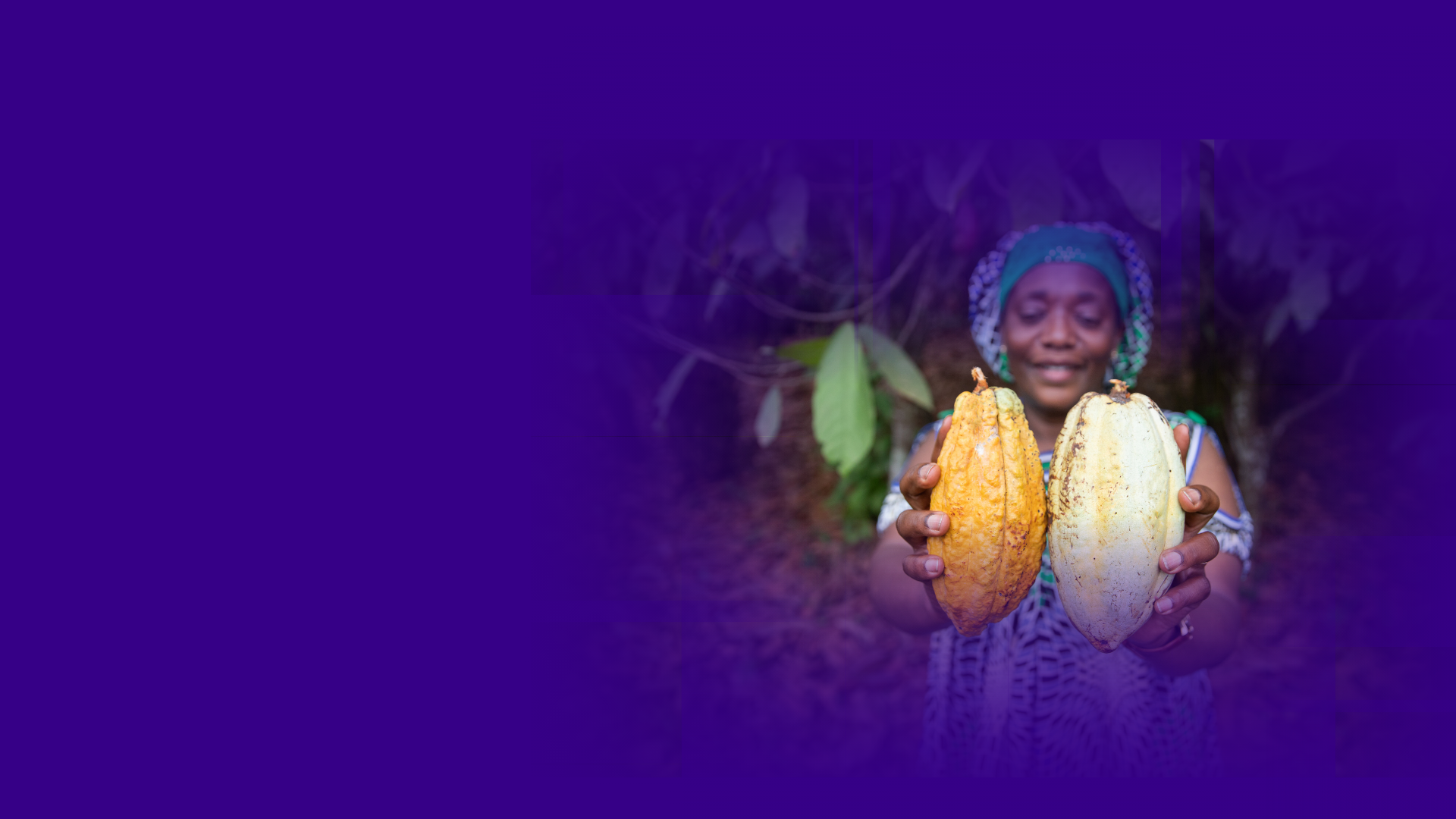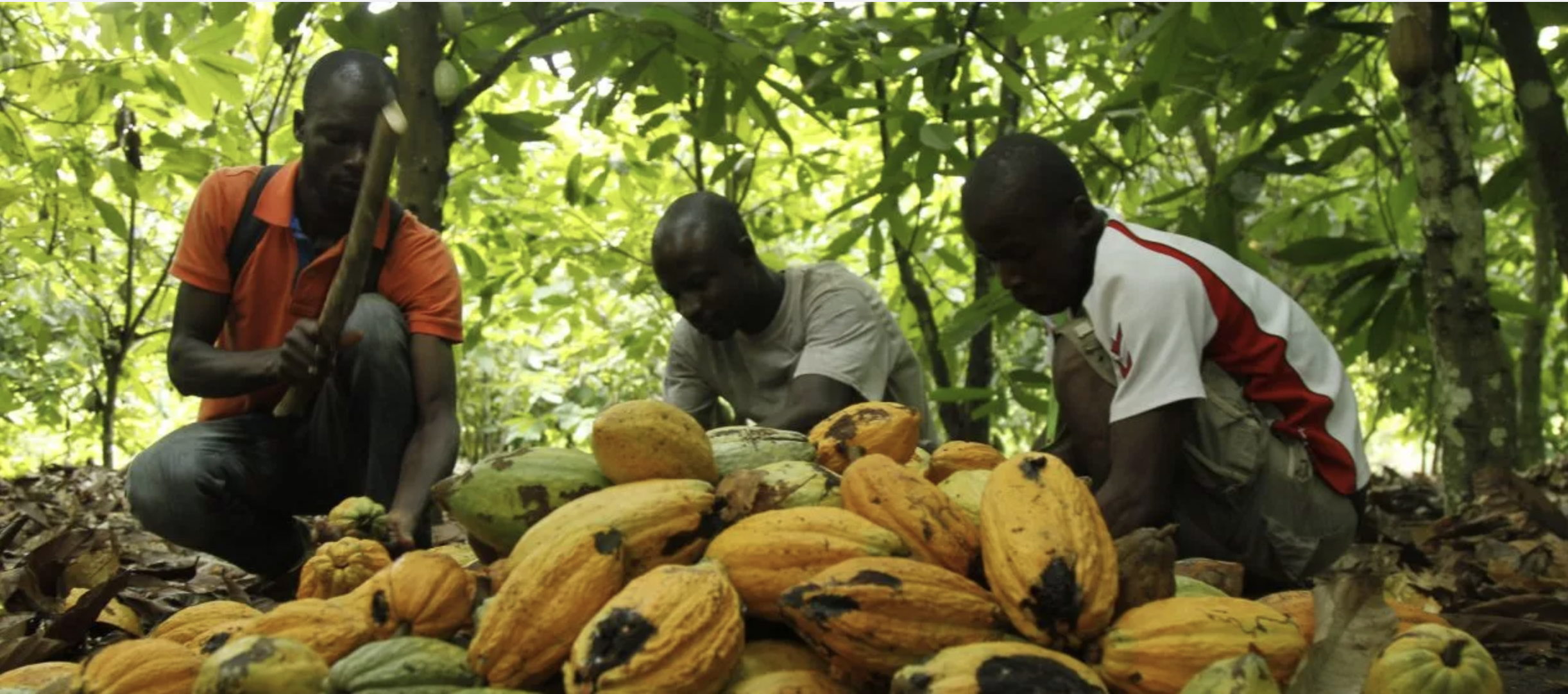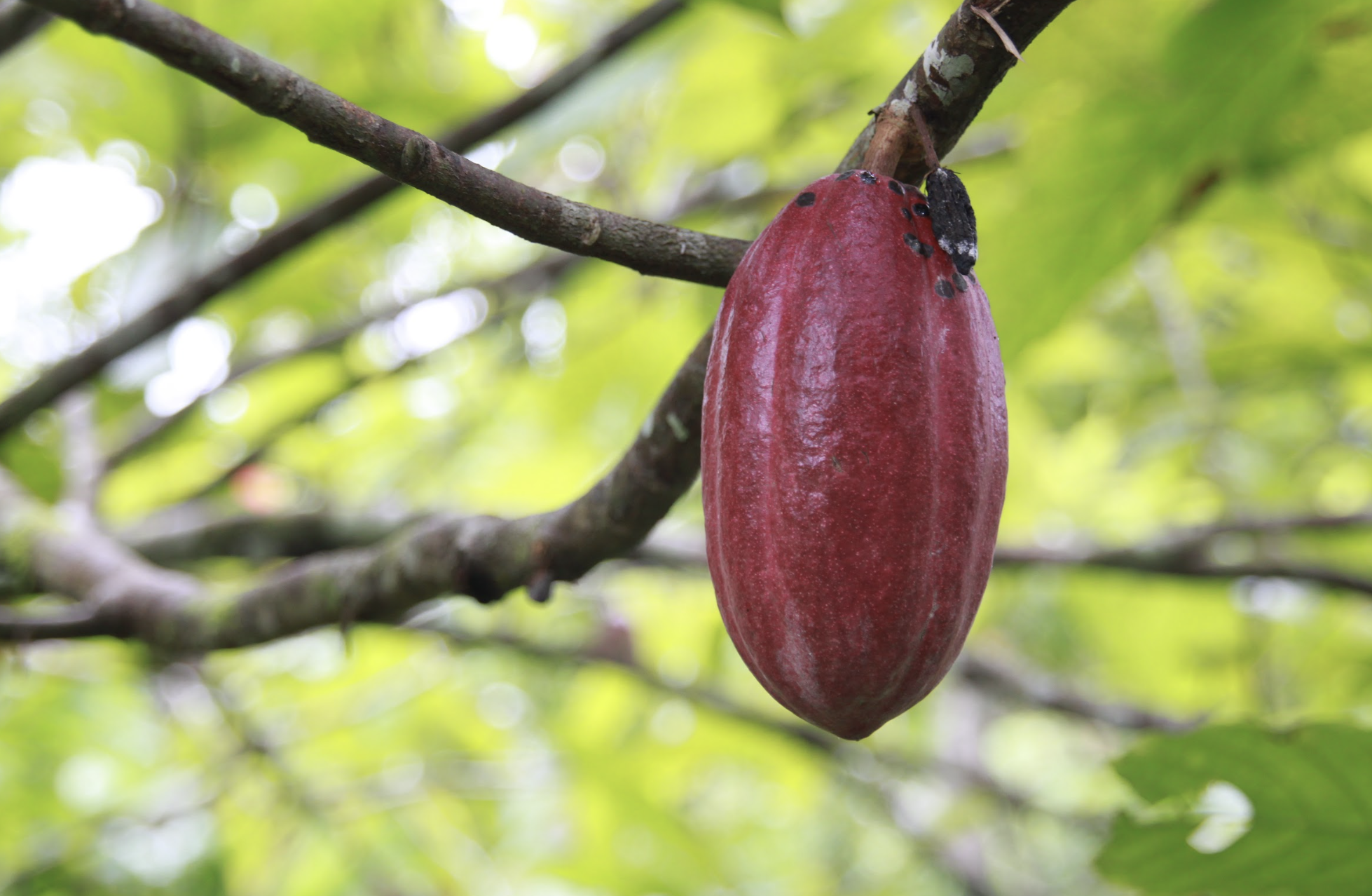
6TH EDITION
GOOD EGG AWARDS
Congratulations! These companies are industry leaders.
GOOD EGG AWARD
TONY'S CHOCOLONELY

GOOD EGG AWARD
BEYOND GOOD

GOOD EGG AWARD
COOP

GENDER AWARD
MARS

BAD EGG AWARD
BAD EGG AWARD
MONDELĒZ
How companies performed in the 6th Edition
Each year we invite chocolate companies, traders, processors, manufacturers, and retailers to participate with us in reporting on progress in seven social and environmental areas essential to a sustainable sector. It allows the sector to explore what 'good' sustainability looks like. Questions are specifically designed for companies to track their own progress. The Chocolate Scorecard is presented to enable consumers to make choices for better chocolate.
THE 6 BIGGEST COMPANIES
These global chocolate giants dominate the industry, accounting for up to 80% of the chocolate sold worldwide. They own many of the brands you know and love—KitKat, Snickers, M&M's, Hershey’s, Lindt, Ferrero, Cadbury, Toblerone, Kinder, Milka, and more. Here’s how they scored.
6TH EDITION
5th

8th

12th

13th

14th

NO RESPONSE


5TH EDITION
5th

8th

9th

10th

20th

25th


Explore your favorite brands


Where we focus
Chocolate can benefit people and the planet - if it is free from child labor, ensures living income for cocoa farmers, empowers women, and protects the environment we all share. We have surveyed chocolate companies worldwide to uncover the practices behind the products you purchase. By promoting transparency and accountability, we aim to support sustainable cocoa sourcing and encourage consumers to make their choice for better chocolate - better for people, the planet and primates.
Traceability & transparency
If you can’t see it, you can’t fix it.
Traceability and transparency are essential for addressing many issues in the cocoa industry.
Living Income

While chocolate companies enjoy significant profits, many farmers live in extreme poverty.
Gender
Empowering women is vital for a sustainable cocoa sector.
Pesticides
Pesticide use in cocoa growing remains alarmingly high, posing significant health risks to both children and adults in cocoa-growing communities.
Child & Forced Labor
Poverty creates a cycle of exploitation, leading to the use of child labor, which jeopardizes children's health, education and their future.
Deforestation & Climate
Deforestation driven by cocoa expansion has resulted in a staggering 90% or greater loss of forests in some producing countries, also endangering vital habitats for great apes and impacting rainfall.
Agroforestry
Cocoa growing can also be an agent of re-greening the planet and re-establishing environments for great apes, other wildlife and insects. While, at the same time, improving cocoa production.
Key Insights
CHOCOLATE IN
CRISIS
TIME TO ACT
Transparency
Drives
Credibility and Accountability
Retailers
It’s Time
to Step Up!
Toxic Pesticides
Unacceptable
Fair Income
Honest Prices
No More
Excuses
Deforestation
Regulations
WORK
Now We Need
Global Action
Child Labor
A Small Step
Won’t Cut It
We Need a
Giant Leap
With Great
Wealth Comes
Great
Responsibility

The Scorecard
We eat chocolate for comfort, celebration and indulgence. But what’s really going into the chocolate we buy?
News & Stories
HOW WE CREATE THE SCORECARD
The Chocolate Scorecard ranks and grades chocolate companies on key sustainability issues.

Cocoa Supply Chain
Issues and Solutions
The journey of cocoa, from a pod on a tree to a chocolate bar, is a long and complex process. Each stage in this journey presents its own set of challenges, impacting both people and the environment. The simplified graphic below outlines the transformation of a cocoa pod into a chocolate bar, highlighting the issues encountered at each step and proposing solutions to address them.
FARMERS
ISSUES
Farmers are living in extreme poverty, which contributes to issues such as child labor, the use of unsafe chemicals, and deforestation.
SOLUTIONS
Living income for farmers, support with costs of farming, child labor monitoring and remediation, getting children to school, support non-compliant farmers in deforested areas, help with safe chemical management.
CO-OPS
ISSUES
Unknown origins of cocoa beans, inability to secure good prices for farmers, lack of demand for sustainable cocoa.
SOLUTIONS
Cocoa traceability, education of farmers on child labor, deforestation, pesticides & agroforestry practices.
TRADERS
ISSUES
Not enough orders to the trader for traceable sustainable or certified cocoa.
SOLUTIONS
Preferencing verified sustainable cocoa, preserving cocoa identity, and offering sustainability-certified cocoa packages.
PROCESSORS
ISSUES
Verifying cocoa is traceable, child labor and deforestation-free. Additional cost of sustainable cocoa.
SOLUTIONS
Ensure premium payments to coops and farmers. Buy and supply sustainable cocoa to manufacturers.
MANUFACTURERS
ISSUES
Traceability & transparency, use of verified sustainable cocoa and derivatives, effective programs to end deforestation & lift farmers out of poverty.
SOLUTIONS
Use of direct verified cocoa supply, investing in effective programs for poverty alleviation, child labor mitigation and prevention, supporting agroforestry, with collaboration throughout the supply chain.
RETAILERS
ISSUES
Sourcing cocoa which meets the same sustainability standards as other brands in their private label / own branded chocolate.
SOLUTIONS
Requiring manufacturers of their private label / own branded chocolate to meet sustainability standards and verify with evidence.
CONSUMERS
ISSUES
Not knowing which chocolate is better for people, planet and primates.
SOLUTIONS
Preference chocolate brands that are engaging better practices - use the Chocolate Scorecard as your guide.
THE STATE OF THE
COCOA
SECTOR
The cocoa sector is currently facing signficant disruption and chaos. Explore more here.

Cocoa & Palm Oil
Many chocolate varieties are palm oil free and use cocoa butter which has a melting temperature close to body temperature. It gives you that creamy slow melting sensation and rich flavour as you pop it in your mouth.
Some chocolate brands use palm oil as it is relatively a cheap ingredient, and has a higher melting point, meaning that if it's used in chocolate, it's less likely to melt before you eat it in warmer climates. It produces a 'waxy' texture when you eat it and is not as rich in flavor.
The production of palm oil is problematic - for people, primates and the planet. Check out the video to find out more.
WE CANNOT DO THIS
WORK ALONE
To create the Chocolate Scorecard we collaborate with universities, expert panel of industry consultants, and civil society groups engaging in the cocoa industry. We work with the chocolate companies, processors and retailers to be a partner with them in their journey to higher levels of transparency, better policies and practices that are the building blocks for a sweeter world for cocoa, so we can all enjoy our chocolate.












